'Mixing piety and pleasure with aplomb'
The former offices of the Baptist Union of Great Britain have been transformed into a boutique hotel in Central London
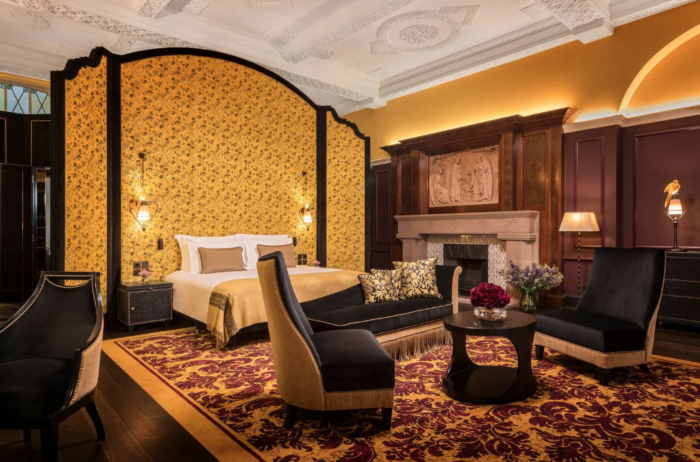
L’oscar in Southampton Row, Holborn, opened for bookings last week (13 June) with many of its period features intact and its rooms and corridors lavishly restored.
L’oscar is based in the former Baptist Church House, a Grade II-listed building which was built between 1901 and 1903 and housed the offices of our Union until the move to Didcot in 1989. The building was originally sold to London Underground in order to make a new entrance to Holborn Tube Station for Crossrail, the scheme to build two new railway lines across London. However, Crossrail in that incarnation did not come about and the building lay unoccupied for many years.
That changed when, looking for a hotel property, French architect and designer Jacques Garcia and the present owner discovered the abandoned building while walking around London.
‘I fell in love with the 19th-century architecture straight away,’ Jacques told Conde Nast Traveller. ‘And within minutes I knew how it would look, how to make this marvellous base sublime.’
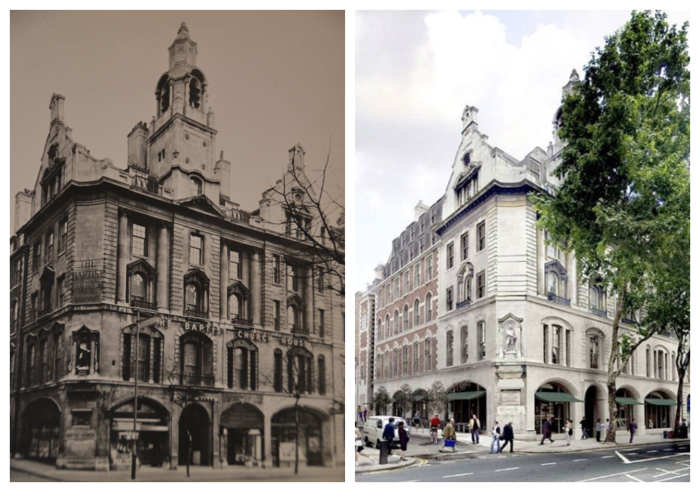
Original architect Arthur Keen mixed ‘Wrenaissance’ style with arts and crafts influences, partnering some of the best artists and craftsmen of the time to create much of the exterior and interior design of ornately plastered ceilings, carved fireplaces, oak panelling, and finely worked plaques. Many Baptists took 'considerable pride' in the centre, with its panelled oak Council Chamber and other fine features, historian Ian Randall told The Baptist Times when news of the building's sale emerged in 2012.
Work on the refurbishment subsequently began approximately six years ago, and the new owners worked closely with English Heritage and Camden Council to ensure a sensitive restoration.
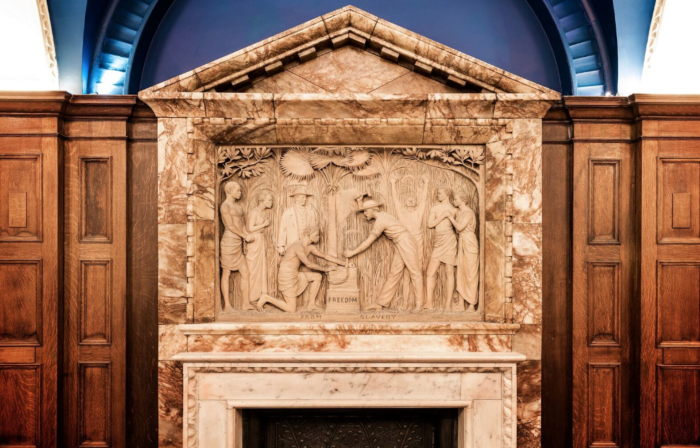
It means much of those striking original features remain, which speak not just of the building’s architecture but also its Baptist past. A bust of John Bunyan continues to cast its eye over Southampton Row from the corner of the building; the committee room, now an intimate events space, contains a fireplace with an original terracotta carving of a scene from Bunyan’s The Pilgrims Progress.
A mezzanine floor has been incorporated into the striking former Council Chamber, the 1903 octagonal chapel with glass dome, and this now houses the hotel’s restaurant The Baptist Grill, and the Baptist Bar below (pictured).
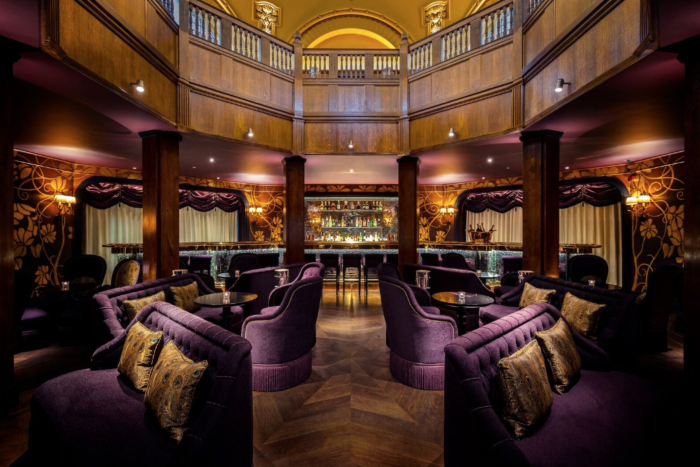
The library is the hotel’s largest events space, and retains its oak panelled shelves, once filled with literature of the Baptist church. There are 39 rooms in total.
The name pays tribute to both the Irish writer Oscar Wilde (one of the mottos of L’oscar is a Wilde quote: ‘Every saint has a past, and every sinner has a future’) and to the glamour of the American Oscar awards ceremony. Hotelier Duncan Shakeshaft says: ‘A hotel is essentially a theatre, with staff and guests playing their parts. It is a performance of the utmost quality, with every detail considered for the enjoyment of the guest and to enhance the harmony of the whole.’
The irony of the transformation of 'the turn-of-the-century Baptist Church Headquarters into a boutique hotel dripping in opulent finishes’ was highlighted in the Robb Report's review of the new hotel, which concluded:
‘Instead of masking its ecclesiastical roots, the property’s developers, led by famed architect and interior designer Jacques Garcia and hotelier Duncan Shakeshaft, have exploited them to an ultra-stylish end—mixing piety and pleasure with aplomb.’
Images:
L'oscar images | Freuds
Baptist Church House | Angus Library and Archive
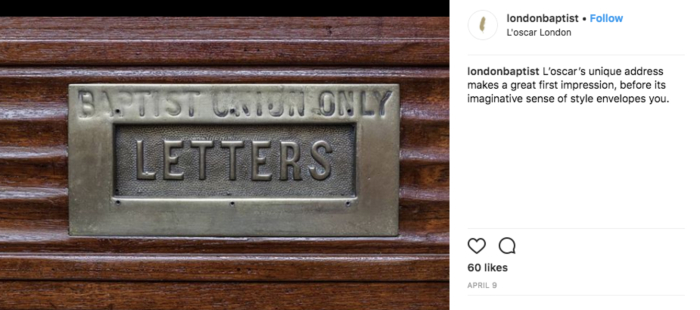
Baptist Times, 15/06/2018